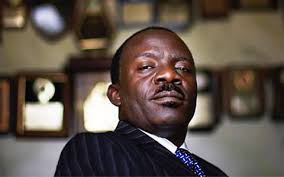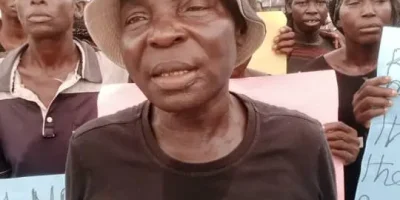Abiodun OBA
Human rights lawyer, Femi Falana, said the reluctance of Nigeria’s leaders to design its structures, is responsible for the country’s retrogressive situations.
Mr Falana, pointed out in an interview on Sunday Politics, a programme of Channels Television.
He said Nigeria’s 61 years journey has been “so far, so bad”, given the fact that countries like Singapore, Malaysia and Indonesia who were on the same pedestal as the country in the 1960s have “frog jumped” their third world status to world-leading economies.
“So, for the majority of our people, 1960 provided an opportunity to start all over again but, unfortunately, the nationalist politicians, who took over the reins of power from the British colonial regime, did not decolonise the country and the psyche of our people, and all of them retained the colonial structures.
“The laws and ordinances were simply changed to the Act of Parliament. The institutions were left intact,” Mr Falana, who spoke after a Bauchi Senator, Adamu Bulkachuwa, said.
He said the country started missing its opportunity for a better status the moment its political elites started embracing colonial pathways rather than creating their own.
Mr Falana also criticised President Muhammadu Buhari Independence Day broadcast, where he thanked the British for uniting Nigeria, despite the notoriety of the colonial regime for the divide and rule approach, a feature that has continued to describe the country’s political landscape.
Human rights lawyer and Senior Advocate of Nigeria, Femi Falana, said he was surprised that the President, Major General Muhammadu Buhari (retd.), could hail Britain for uniting Nigeria in his Independence Day speech.
The President in his Independence Day speech had said, “For 1st of October 1960 to happen, all hands were on deck. East, West, North all came together to celebrate freedom. Today should not only serve as a reminder of the day the British handed over the reins of power to Nigerians, but also unified Nigerians from all ethnic groups, religions and regions.”
Falana, noted that Nigeria is still grappling with underdevelopment due to its failure to remove structures mounted by the British colonialists.
“When President Muhammadu Buhari’s broadcast yesterday (October 1) was thanking the British for uniting us, I was wondering where that was coming from, because the colonial regime engaged in divide-and-rule,” he said.
“So, for the majority of our people, 1960 provided an opportunity to start all over again but, unfortunately, the nationalist politicians who took over the reins of power from the British colonial regime did not decolonise the country and the psyche of our people. And all of them retained the colonial structures. The laws and ordinances were simply changed to Act of Parliament. The institutions were left intact.”
Falana cited the example of the Nigeria Police, Nigerian Army and other security agencies, which have “continued to perform the roles they were performing under the colonial regime, i.e. these were forces set up to intimidate and harass our people, and extort levies and taxes from them. And that has continued up till now.”
According to the lawyer, the moment the political class embraced the development paradigm of colonialism and imperialism, the country got it wrong.
He also noted that the colonial regime adopted divide et impera taxim – divide and rule – in order to satisfy imperialism; noting that Nigeria was not established for the development of the country but was set up to facilitate the brutal exploitation of its human and natural resources after the slave trade.
“Colonialism was in practice for over a hundred years; so, what you would have expected in 1960 was a radical departure from the colonial route that has led to the underdevelopment of our country.
“Unfortunately, when military adventurers in politics stepped in in 1960, the situation became worse. The country that was trying to practise federalism was turned into a unitary one,” Falana added.
On the debate for the zoning of the 2023 Presidential ticket by southern and northern political leaders, the lawyer noted that such a tussle is divisive and should not be condoned in the political space.
He argued that such debate will further reduce the country’s political development to regional affairs rather than promoting better governance for all.
“Finally, on the presidency, I am very reluctant to join issues with those who want the presidency in the south or north, and I am going to appeal to the media to assist Nigerians to challenge those who are reducing the politics of 2023 to regional affairs.
“We must ask those who want the president and their candidate to address the problems of underdevelopment of our country, what will be your position on VAT? What will be your position on access to education for Nigerian children? What will be your position on going abroad for medical treatment? Unless you ask these questions, it becomes a question of ‘it is my turn,” Mr Falana said.








Comments